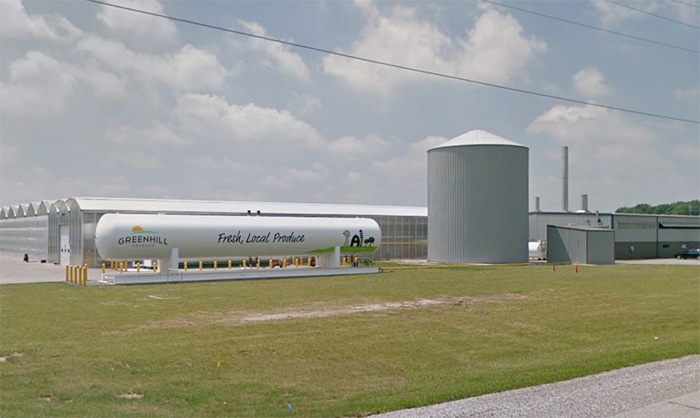
Deceased Windsor-Essex migrant worker spent time at Greenhill
Jenna Cocullo, Local Journalism Initiative
The Greenhill Produce COVID-19 outbreak is declared to be officially over, however, advocates are still pushing for change over the treatment of migrant workers in the municipality and across Southwestern Ontario.
To date, there are 152 total cumulative cases of COVID-19 from Chatham-Kent residents. Five cases are still active. Two-thirds of those cases are from the outbreak at Greenhill Produce, the majority of which were migrant workers.
Dr. David Colby gave an update on the situation at the Chatham-Kent Board of Health meeting on Wednesday. In the morning, the last 54 individuals tested at the Kent Bridge greenhouse came back negative.
More than 650 migrant workers in Southwestern Ontario have been confirmed with COVID-19 over the course of the pandemic. Chris Ramsaroop, a migrant worker advocate with Justice for Migrant Workers (J4MW), said he expects that number to surpass 700 shortly.
Two migrant workers passed away in Windsor-Essex, one of which, Rogelio Muñoz Santos, did work for Greenhill during the pandemic.
Greenhill Produce personnel said they would not comment on the matter. They did say he was not an employee and refused to specify how he was associated with Greenhill. Ramsaroop said that he was likely a contract worker (not considered to be an employee).
Ramsaroop added he was disappointed that CK Public Health did not report on the death.
“We were certainly aware of the death of the Greenhill employee [sic], and send our thoughts to the family of the individual who passed. We just do not report on cases who do not reside in Chatham-Kent,” said Stephanie Egelton, community relations for CK Public Health. “We have been working with our neighbouring health units from the onset of these outbreaks, and there is regular communication between health units for case, contact and outbreak management as people work and have contact with people across public health borders despite where they may reside.”
A report released earlier this month by Migrant Workers Alliance for Change (MWAC) “raised concerns about how Canada’s temporary immigration system breeds abuse and exploitation,” stating that COVID-19 merely highlighted already underlying systemic problems.
According to the report, “workers (at Greenhill) confirmed that they never received any sick days in previous years and this remained the case this year. Only when some workers were sick to the point that they couldn’t get up to go to work, were they tested for COVID-19. Once they tested positive, workers reported being moved into two houses with 20 workers each and just three bathrooms. Each room in the house has six workers in cramped quarters.”
Windsor Law students Taneeta Doma and Sarah Khan wrote an open letter, signed by the majority of the students in the program and at other Canadian law schools, to federal Minister of Immigration, Refugees and Citizenship Marco Mendicino.
“These workers are the backbone of the Canadian economy as they provide us with food security,” Doma and Khan said.
The law students demanded that migrant workers receive permanent status on arrival to allow them to choose safer workplaces and help control the transmission of COVID-19. Because migrant workers are deported and repatriated, moving them across borders creates risk of COVID-19 transmission for them, and for other workers, they said.
With respect to the COVID-19 situation, amendments to the Immigration and Refugee Protection Regulations came into force, which include additional requirements for foreign nationals and employers. Under the new regulations, anyone authorized to enter Canada temporarily could be found inadmissible, issued a removal order, and barred from returning for one year for failing to follow an isolation order, according to Canada Border Services Agency.
Issues of migrant workers’ living conditions were also brought up.
“Many migrant workers continue to live in conditions not fit for any human being, including crowded bunkhouses with little privacy, insect infestations, and non-functioning plumbing. These conditions also make workers vulnerable to COVID-19 transmission, as we have seen in outbreaks in Kelowna, B.C. and Windsor-Essex and Chatham-Kent, Ont.,” Khan and Doma explained.
Ramsaroop said he would have liked to have seen the Municipality of Chatham-Kent rent out hotel rooms or provide another space, leased by the city, for migrant workers to socially distance for the whole season.
“If the city has the means and ability to help the vulnerable, they should be prioritized like they did with emergency shelters (for the homeless),” he said.
Under the social distancing rules, migrant workers living in a bunkhouse are considered like any large family living together. Last month, Chatham-Kent CAO Don Shropshire, said that the municipality would not look into making any changes during the pandemic.
The MWAC report claimed that 110 workers, out of more than 400, reported lack of access to health-care services, particularly lack of health cards. At least 20 Spanish-speaking workers and 92 Jamaican workers who arrived in Ontario on or before April 1 had not received their health cards as of June 3.
Others reported not receiving health-care information or not knowing who to contact for health information while they were prevented from leaving farms.
Ramsaroop said in the event of a second wave, Chatham-Kent’s medical officer of health has to take workers into consideration first and foremost.
“Here this young 24-year-old kid dies and everyone wants to wash their hands of it,” he said. “The municipality, province and feds need to respond now.”
Colby did not yet respond to request for comment, but in a previous interview said that CK Public Health was in communication with Greenhill Produce every day during the outbreak.






